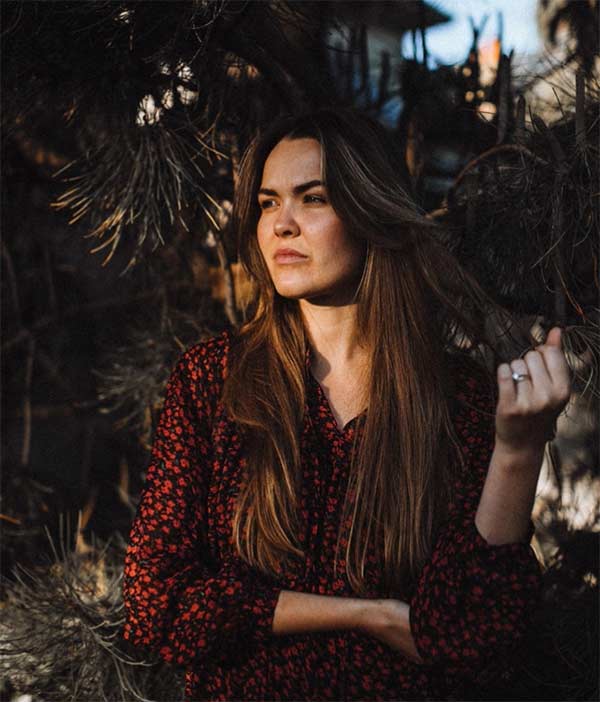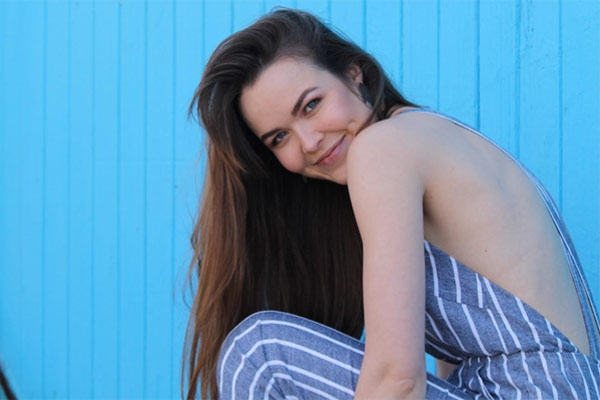The initial experience that triggers the creative journey is different for every musician. For some, it’s the twang of banjo strings in an old Western film, while for others, it’s afternoons spent singing along as their parents play guitar.
For ARIA Award-winning singer-songwriter Chelsea Cullen, it was the arrival of Destiny’s Child.
“The biggest influence on me was probably Beyoncé and Destiny’s Child. They were massive when I was growing up. The first tape I bought was by Destiny’s Child – I used to listen to it over and over again – I loved it,” she says.
From there, Chelsea’s obsession with music grew, nurtured by her saxophone-playing father, her trio of singing sisters, and a teacher who knew the importance of guiding young talent. “The first song I wrote was when I was around 10 years old. My sister and I had a great music teacher at our school, and he was always encouraging us to be creative and write our own songs. He ended up recording a song for us and that’s how I fell in love with the process of songwriting and music production.”
By the time she graduated high school, Chelsea was unapologetically hooked on music and so enrolled at the SAE Creative Media Institute. A Diploma In Audio Production allowed her to dive deep into lyrics, melody, harmony, rhythm, genre, and all aspects of music production. Thanks to the guidance and support of SAE, Chelsea blossomed into an award-winning performer.
With so many graduates like Chelsea carving successful paths through the music industry, SAE has recently announced an all-new Bachelor of Songwriting And Music Production degree, which will be offered at five of its Australian campuses. This two-year accelerated course gives students the opportunity to fast-track their development, meaning success like Chelsea’s could be just around the corner.
Chelsea took out a 2020 ARIA award for her portrayal of Helen Reddy in the 2019 biographical film, 'I Am Woman'. Film work like this is not unusual for SAE graduates as the multidisciplinary media institute encourages students to collaborate with other SAE faculties, meaning the doors are open for work in games, television, short films, animations, and even feature films like the one Chelsea starred in.
Though performance is clearly her forte, the positive experiences she had as a student at SAE have stuck with her in more ways than one. Chelsea works as a vocal coach and is always open to sharing advice with new students as she’s keen to pass along the inspiration she got from her teachers.
One of her biggest pointers is to understand and work with musical structures but to also feel free to pick up your instrument, pour your heart out, and see what you can make with the beautiful mess. “I encourage people to break out of the norms of songwriting and just jam – literally just sing whatever melody and words flow out from them in that moment. It’s extremely therapeutic as well.”
“Sometimes I’ll come up with some simple chords on piano, and then get the student to add to it with whatever comes to mind. To me that is so much harder than structured songwriting because you don’t know what’s going to come out and you really have to let go and trust yourself. If you want to write a specific pop song you may wish to structure your songwriting differently. However, if you’ve never written a song before or you’ve got a creative block, improvising is a great way to begin the process.”
If you still find yourself stumped for inspiration, Chelsea says it’s helpful to start with something that’s simple but meaningful to you. “I might have a cool line that stands out from a whole lot of mumbling, and I’ll then find a way to make a song work around that line, and it flows from there. Sometimes I’ll look back at old songs and reflect on what I was going through at that time, which may lead to a new perspective and source of inspiration for me.”

Once inspiration has struck and the ideas are flowing, many artists slip into a flurry of exuberant activity which Chelsea calls “the honeymoon period”. Of course, after listening to the same thing a million times, the shine can soon wear off. To combat this creative fatigue and avoid the “all-absorbing negative spiral” it can send you into, Chelsea recommends creating a calm environment and indulging in some self-care. “I believe looking after yourself is a key part of the creative process.”
She also advocates having a creative community you can turn to for support and feedback. Through her time at SAE and beyond, Chelsea has been nurturing her own crew of talented mates who are all there for each other when advice or collaboration is called for.
“I think it’s hard to make a song entirely by yourself. Some people are able to do it, but I find it’s valuable to have someone who can mix the song and another person who masters it. It’s then being influenced by other people that you trust or who are experts in those fields.
“I have hundreds of songs that have never been heard. We all have this fear of shame, as songwriting is such a vulnerable thing. It is a courageous process!”
Check out SAE's offering – including their brand-new Bachelor of Songwriting And Music Production degree – here.


